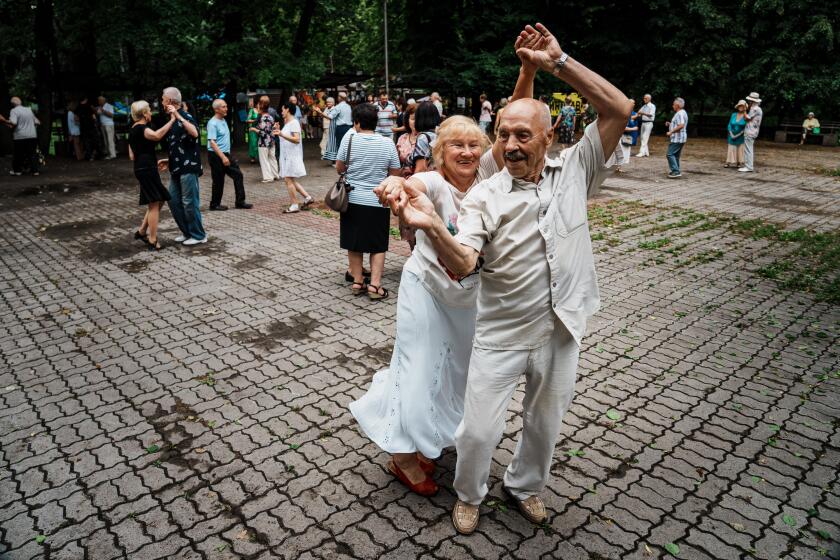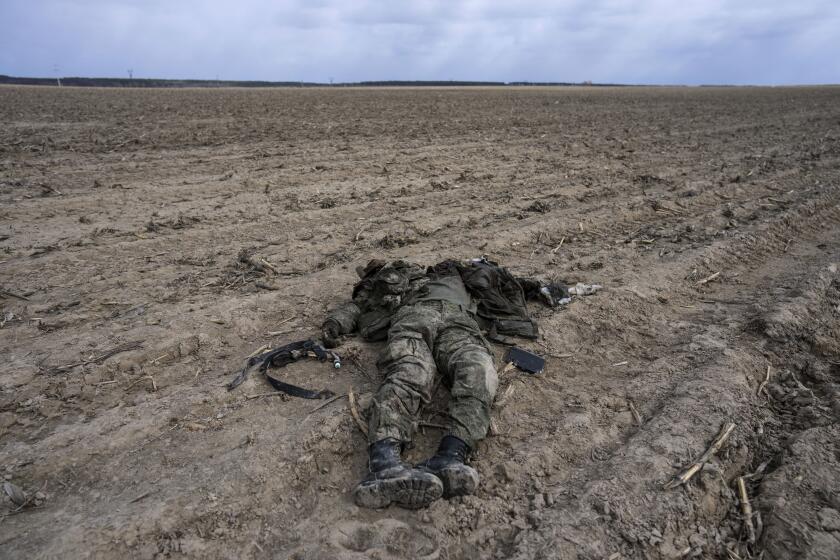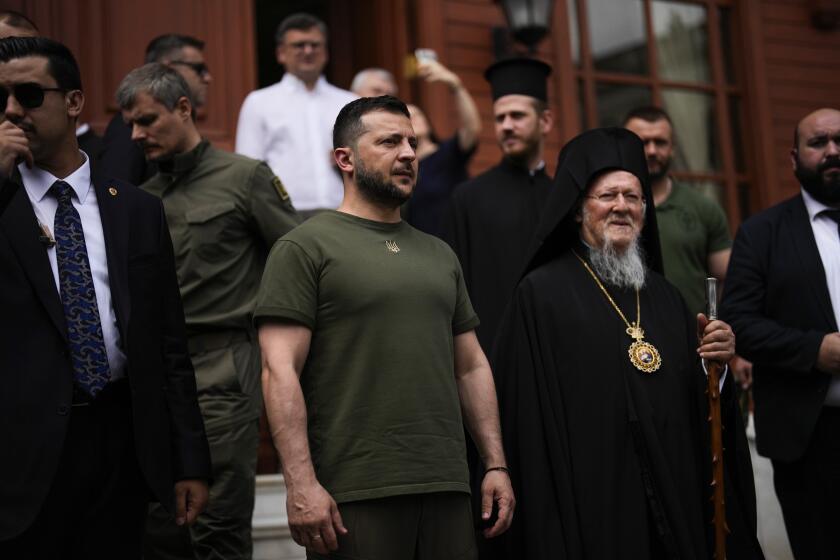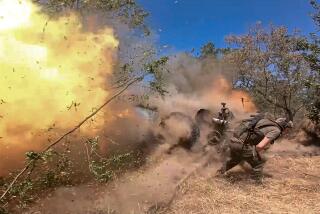Ukraine repels large Russian missile and drone attack that injures civilians in Kyiv
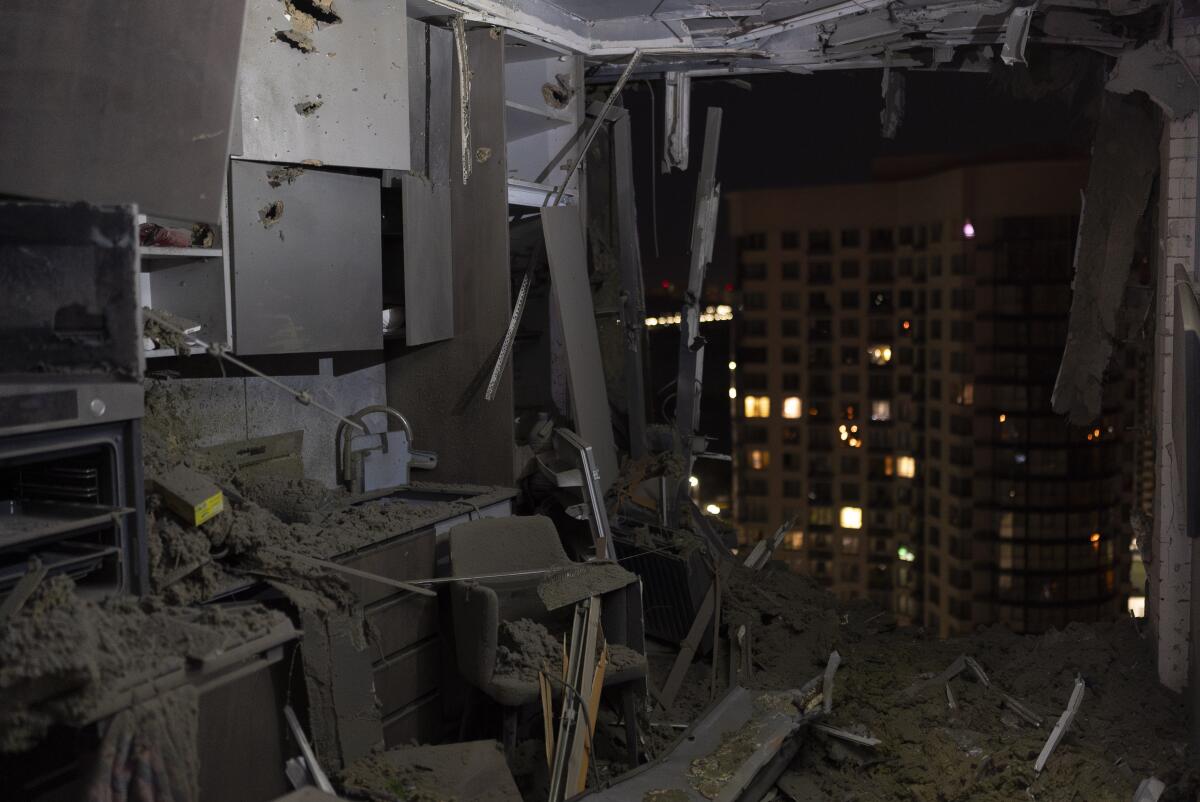
KYIV, Ukraine — Ukrainian officials said air defenses shot down 20 Iranian-made drones fired by Russia mostly at the Kyiv region early Thursday, but wreckage fell on four districts of the capital, wounding two people and destroying several homes.
The attack came hours after NATO wrapped up its annual summit with fresh pledges of weapons and ammunition and longer-term security guarantees but no clear path for Ukraine to join the alliance. Russian President Vladimir Putin reaffirmed Thursday that Ukraine’s membership in NATO is unacceptable for Moscow.
“It would raise the threat for Russia’s security,” Putin said in televised remarks. “It wouldn’t increase Ukraine’s own security, and, more broadly, would make the world more vulnerable and lead to more tensions on the international arena.”
On Thursday, the Pentagon said cluster munitions provided by the United States have arrived in Ukraine.
The munitions, which are bombs that open in the air and release scores of smaller bomblets, are banned by many countries because of their track record for causing civilian casualties. The U.S. sees them as a way to get Kyiv critically needed ammunition to help its forces push through Russian front lines. U.S. leaders debated the thorny issue for months, before President Biden made the final decision last week.
The U.S. said it would send a version of the munition that has a reduced “dud rate,” meaning fewer of the smaller bomblets fail to explode. The unexploded rounds, which often litter battlefields and populated civilian areas, cause unintended deaths.
The latest barrage by the Kremlin’s forces began shortly after midnight, and explosions shook different parts of the city. Two people were hospitalized with shrapnel wounds, authorities said.
In the Ukrainian capital, rescuers extinguished a fire in a 16-story building, as well as another in a non-residential building, the Interior Ministry said. Debris also damaged the frontage of a 25-story apartment building, it said.
Russian strikes have become a grim part of everyday life in Ukraine over the almost 17 months of the war.
Meanwhile, a senior officer leading Russian forces against Kyiv’s recent counteroffensive in southern Ukraine, Lt. Gen. Oleg Tsokov, was reportedly killed by a Ukrainian missile strike.
Tsokov died when the Ukrainian military struck the city of Berdyansk on Tuesday with British-supplied Storm Shadow missiles, according to retired Gen. Andrei Gurulev, who commanded the 58th Army in the past and currently serves as a lawmaker.
How do citizens of Kyiv cope with the sleep deprivation and stress from Russia’s war on Ukraine? Some push it down, some try yoga or dancing.
Russia’s Defense Ministry hasn’t reported Tsokov’s death.
In the aftermath of the nighttime attack on Kyiv, Volodymyr Motus, a 22-year-old resident of the 25-story building, carefully picked his way across the floor of a destroyed apartment, his footsteps accompanied by the sound of shattered glass being crunched underfoot. The mangled furniture was coated in a thick layer of dust.
“I was in my apartment and suddenly I heard a boom — that’s all. Then the alarm went off and I went down to the shelter,” Motus said.
He said that some people were injured but that they were all alive.
Nearly 50,000 Russian soldiers have died in the war in Ukraine, according to a new statistical analysis.
In May, Russia launched dozens of drones and missiles at Kyiv almost every night, forcing its residents to spend their nights in shelters. During the summer, attacks have come less frequently, but they still strike unpredictably across the country.
Ukrainian human rights chief Dmytro Lubinets wrote on Telegram: “It should be explained that each ‘air alarm’ in Ukraine is like playing Russian roulette. ... It’s unknown the number of people who could be affected, and it is uncertain from which part of Ukraine bad news about the strike of an enemy drone or missile will come.”
The Ukrainian military said it also intercepted two Russian cruise missiles. The statement said one ballistic missile was not intercepted, but it did not say what damage the missile caused.
The government of the region of Khmelnytskyi in western Ukraine said a cruise missile was intercepted over the region but reported no casualties. “We appreciate the meticulous work of Ukraine’s air-defense forces,” the regional administration wrote on Telegram.
Ukrainian President Volodymyr Zelensky marked the 500th day of the war in a video from a Black Sea island that became the symbol of Ukraine resilience.
Recently, a Russian cruise missile struck an apartment building in the western city of Lviv, resulting in a death toll that reached 10 and injuring dozens of people. And in the southern and eastern regions of the country, where heavy fighting is taking place on front lines, the intensity of missile attacks has remained high since the beginning of the war.
At least three civilians were killed and 38 more sustained injuries in Ukraine over the last 24 hours, Ukraine’s presidential office reported Thursday morning.
In the partially occupied Donetsk region, Russian forces targeted 13 cities and villages under Ukrainian control with aviation, missiles and heavy artillery.
In the partially occupied Zaporizhzhia region, the number of wounded by drone debris Wednesday rose to 21, and fires broke out in the city of Kherson after Russian shelling.
Speaking to reporters in televised remarks from Moscow, Putin reaffirmed that supplies of Western weapons to Ukraine wouldn’t change the course of the conflict. He said that Western missiles “do inflict some damage but nothing critical is happening” for the Russian forces.
Putin added that Western tanks and other armored vehicles delivered to Ukraine likewise haven’t had any significant impact and have become “priority targets” for the Russian army. He mockingly alleged that foreign tanks “burn even better” than the Soviet-designed tanks in the Ukrainian army’s inventory.
More to Read
Sign up for Essential California
The most important California stories and recommendations in your inbox every morning.
You may occasionally receive promotional content from the Los Angeles Times.
